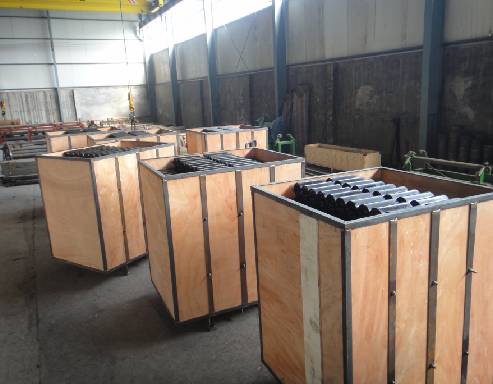 Afrikaans
Afrikaans  Albanian
Albanian  Amharic
Amharic  Arabic
Arabic  Armenian
Armenian  Azerbaijani
Azerbaijani  Basque
Basque  Belarusian
Belarusian  Bengali
Bengali  Bosnian
Bosnian  Bulgarian
Bulgarian  Catalan
Catalan  Cebuano
Cebuano  Corsican
Corsican  Croatian
Croatian  Czech
Czech  Danish
Danish  Dutch
Dutch  English
English  Esperanto
Esperanto  Estonian
Estonian  Finnish
Finnish  French
French  Frisian
Frisian  Galician
Galician  Georgian
Georgian  German
German  Greek
Greek  Gujarati
Gujarati  Haitian Creole
Haitian Creole  hausa
hausa  hawaiian
hawaiian  Hebrew
Hebrew  Hindi
Hindi  Miao
Miao  Hungarian
Hungarian  Icelandic
Icelandic  igbo
igbo  Indonesian
Indonesian  irish
irish  Italian
Italian  Japanese
Japanese  Javanese
Javanese  Kannada
Kannada  kazakh
kazakh  Khmer
Khmer  Rwandese
Rwandese  Korean
Korean  Kurdish
Kurdish  Kyrgyz
Kyrgyz  Lao
Lao  Latin
Latin  Latvian
Latvian  Lithuanian
Lithuanian  Luxembourgish
Luxembourgish  Macedonian
Macedonian  Malgashi
Malgashi  Malay
Malay  Malayalam
Malayalam  Maltese
Maltese  Maori
Maori  Marathi
Marathi  Mongolian
Mongolian  Myanmar
Myanmar  Nepali
Nepali  Norwegian
Norwegian  Norwegian
Norwegian  Occitan
Occitan  Pashto
Pashto  Persian
Persian  Polish
Polish  Portuguese
Portuguese  Punjabi
Punjabi  Romanian
Romanian  Russian
Russian  Samoan
Samoan  Scottish Gaelic
Scottish Gaelic  Serbian
Serbian  Sesotho
Sesotho  Shona
Shona  Sindhi
Sindhi  Sinhala
Sinhala  Slovak
Slovak  Slovenian
Slovenian  Somali
Somali  Spanish
Spanish  Sundanese
Sundanese  Swahili
Swahili  Swedish
Swedish  Tagalog
Tagalog  Tajik
Tajik  Tamil
Tamil  Tatar
Tatar  Telugu
Telugu  Thai
Thai  Turkish
Turkish  Turkmen
Turkmen  Ukrainian
Ukrainian  Urdu
Urdu  Uighur
Uighur  Uzbek
Uzbek  Vietnamese
Vietnamese  Welsh
Welsh  Bantu
Bantu  Yiddish
Yiddish  Yoruba
Yoruba  Zulu
Zulu Industrial Conveyor Belt Rollers for Enhanced Efficiency and Productivity in Manufacturing Processes
The Importance of Conveyor Belt Rollers in Industrial Operations
In the world of manufacturing and material handling, conveyor systems play a crucial role in ensuring efficient and streamlined operations. At the heart of these systems are conveyor belt rollers, which are essential components that facilitate the movement of goods across various industrial environments. This article explores the significance of conveyor belt rollers, their types, and their impact on productivity.
Conveyor belt rollers are cylindrical devices that support and guide the conveyor belt as it moves along the specified path. They are designed to reduce friction between the belt and the surface it travels on, ensuring smooth operation and minimal wear on the conveyor system. Depending on the application, rollers can be made from various materials, including steel, aluminum, and plastic, each offering unique advantages in terms of strength, weight, and resistance to corrosion.
Types of Conveyor Belt Rollers
There are several types of conveyor belt rollers, each suited for different applications. The most common types include
1. Idler Rollers These are non-powered rollers that support the conveyor belt and help maintain its tension. Idler rollers can be further classified into smooth, grooved, and crowned types, each serving different purposes in managing belt alignment and cargo support.
2. Drive Rollers These rollers are powered and are responsible for moving the conveyor belt. They provide the necessary force to transport materials from one location to another. Drive rollers can also be equipped with various surface textures to enhance grip and control over the materials being transported.
3. Return Rollers Located on the return side of the conveyor system, these rollers help guide the conveyor belt back to its starting position. They ensure that the belt remains properly aligned and reduces the risk of damage to both the belt and the rollers.
industrial conveyor belt rollers

4. Specialty Rollers In some cases, specific industries may require custom rollers designed for unique tasks. For instance, tapered rollers can help in transferring products from one conveyor to another, while impact rollers are designed to absorb shocks and reduce wear from heavy loads.
Impact on Efficiency and Productivity
The role of conveyor belt rollers extends beyond mere support. They significantly impact the efficiency and productivity of an industrial operation. Well-designed and maintained rollers reduce downtime caused by equipment failure and belt misalignment. This not only speeds up the material handling process but also enhances the overall safety of the system.
Additionally, the selection of the right type of roller can lead to cost savings in the long run. By choosing rollers that are compatible with the specific materials being transported, manufacturers can minimize wear and tear, potentially extending the lifespan of the conveyor belt and reducing replacement costs.
Moreover, technological advancements in roller design have led to the development of energy-efficient rollers. These innovations can lower the energy consumption of conveyor systems, translating into lower operational costs and a reduced carbon footprint.
Conclusion
In summary, conveyor belt rollers are integral components of industrial conveyor systems that facilitate the movement of goods efficiently and safely. Understanding the different types of rollers and their functionalities is crucial for optimizing material handling processes. As industries continue to evolve, investing in high-quality conveyor belt rollers and regular maintenance will be essential for maintaining productivity and ensuring long-term operational success. With the right roller system in place, businesses can achieve smoother operations, lower costs, and enhanced efficiency in their material handling processes.
-
Revolutionizing Conveyor Reliability with Advanced Rubber Lagging PulleysNewsJul.22,2025
-
Powering Precision and Durability with Expert Manufacturers of Conveyor ComponentsNewsJul.22,2025
-
Optimizing Conveyor Systems with Advanced Conveyor AccessoriesNewsJul.22,2025
-
Maximize Conveyor Efficiency with Quality Conveyor Idler PulleysNewsJul.22,2025
-
Future-Proof Your Conveyor System with High-Performance Polyurethane RollerNewsJul.22,2025
-
Driving Efficiency Forward with Quality Idlers and RollersNewsJul.22,2025





























